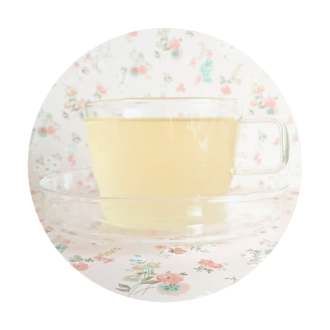Hey there Teacups! I’m back today with another Let’s Talk Tea post and this time around I’m going to be reviewing Obubu Tea Farms – Tusbame Kukicha (Stem Tea). I’ve tried one tea and one tisane from Obubu Tea Farms now and I’ve enjoyed each of them a lot, so when it came to trying this one I was excited to see if it was just as good as the others. I can’t say I’ve ever had a stem tea before so while being a little nervous I was mostly intrigued to see what it had to offer and whether or not I was going to enjoy it.
Here’s what Obubu Tea Farms have to say about this tea on their website:
“Medium-bodied with a mild aftertaste, Tsubame has a dark sweetness with notable flavours of bark and molasses. Pale yellow in colour, Tsubame liquor has a leafy aroma with honeyed hints. Made from the stems of summer Tencha leaves, this tea is hardier and more resilient.”
“Kukicha (茎茶) means ‘stem tea’ and refers to the tea’s content. Kukicha is a kind of tea made from the young stems and stalks of the tea plant. After steaming and processing the harvested leaves, the stems are separated and then dried to make Kukicha.”
“Reflecting on the ‘wholeness’ philosophy of Japanese Zen Buddhism the whole tea leaf is turned into tea without waisting any of its parts.”
“Kukicha is full of nutrition as lots of the vitamins are concentrated in the stems of the leaves and these are released by the brewing process. The bitter substances on the other hand are weak so that the tea has a refreshing, almost grassy flavour. Kukicha is naturally very low in caffeine, as most of the caffeine is in the actual leaves and buds. This makes Kukicha an excellent drink for any time of the day.”
“Reference: ‘Comparison of flavour components between Kukicha (stalk green tea) and Sencha (green tea)’, by Hara , T. Fukatsu , S. In , K.” 
Tea Tasting Notes
Earth – Grass – Hay – Cut Grass – Sweet – Bark – Molasses
I really like this tea because it’s so incredibly versatile and because it doesn’t have a lot of caffeine in it I can have it at any time of the day, which is going to be amazing throughout the coming summer months. Unlike many other ‘green’ teas, I enjoy it in a variety of steeping methods. Each has a unique flavour. Western style—it is smooth and refreshing with a sweet, grassy and earthy flavour profile with an ever so slight hay like undertone.
In a gaiwan using extra leaves and short steeps, there is a much more rich buttery taste which I really wasn’t expecting at all. As an iced tea, a new sweetness came out of it and everything seemed to balance out well. The grassy notes, the earthy notes, and the hay notes were all the strongest but no note was strong enough to overpower another, making for a pleasant and well rounded cup of tea to drink. I can see myself drinking a lot of this iced during the summer simply because of how fresh and refreshing it is. This tea embodies all the reasons I fell in love with green tea in the first place.
This was my first time tasting any type of Kukicha at all and honestly I’m struck by the distinct sweetness and almost complete lack of astringency no matter how long you steep it for, with a natural degree of sweetness (especially iced) that reminds me of white grapes. I didn’t get much from the dry aroma of this tea so it be so flavourful was quite a shock to me. The overall aroma while steeping was very vegetal with an ever so slight sweetness so I was expecting it to be too much for me and that I wouldn’t be able to stomach such strong vegetals, but it was very well balanced and has so much more to it than I initially expected it to have.
If you are like me and you haven’t tried a Kukicha before I highly recommend this one because its absolutely delicious and if you’re a fan of green tea, especially Sencha, you will love it. With Sencha and most other pure/straight green teas I haven’t have them iced at all as they are just too strong for me in terms of their vegetal notes but this one is different and I’m really excited to enjoy it iced over the summer. If you’re wondering, this tea is quite sweet so I don’t have to add honey, for me it would just throw it off balance. I’m so glad to have tried my first Kukicha and to have loved it so much; I can’t wait to try others in the future, but they are going to have to be amazing to knock this one off the top spot.
Overall Teacup Rating: 5/5
If you want to find out more about Obubu Tea Farms and purchase of this tea for yourself, you can do both here. As always if you have any questions at all either stick them in the comments or send them to me on Twitter/Instagram @teaisawishblog and I’ll answer them all as soon as I can.
Speak to you all again soon. Happy Steeping – Kimberley
Leave a comment